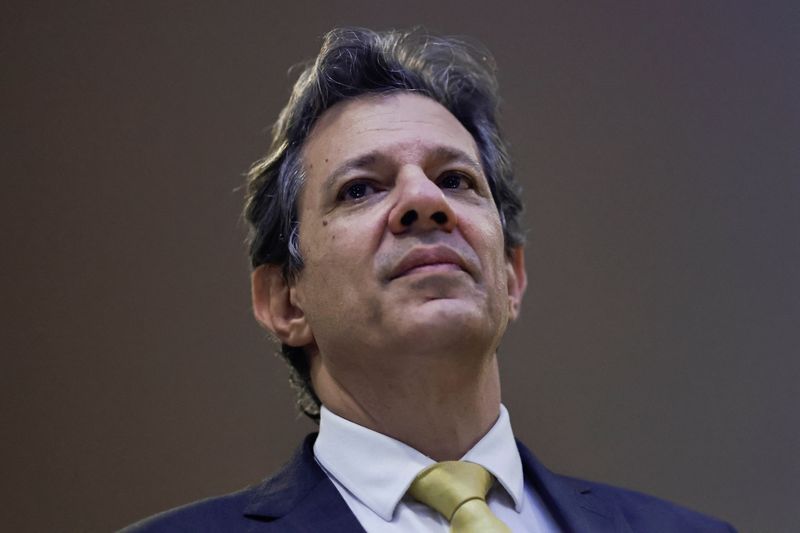SAO PAULO (Reuters) - Brazil's finance minister has confirmed the country's monetary council will keep next year's inflation target at 3%, but reiterated he expects the body to tweak the time frame used to assess the goal's fulfillment.
Fernando Haddad's remarks in an interview with GloboNews aired late on Wednesday came as markets on Thursday closely watch the National Monetary Council's (CMN) meeting for potential changes on inflation targets.
"Next year's target is already set," Haddad told the news channel, ruling out changing it.
He said that instead of tweaking the target itself, the CMN should alter the reference for the central bank to pursue it from the calendar year to a "continuous" target to be pursued over the years. The council is the country's top economic policy body.
Inflation targets that have the calendar year as a time frame cause "unnecessary pressure," he said.
The CMN, which comprises Haddad, the planning minister and the central bank governor, will meet on Thursday to decide on inflation goals for 2026 amid President Luiz Inacio Lula da Silva's intense criticism of high interest rates in the country.
The central bank currently targets inflation of 3.25% in 2023 and 3% in 2024 and 2025, with a tolerance margin of 1.5 percentage points up or down. Its benchmark interest rate, meanwhile, stands at a six-year high of 13.75%.
Lula previously hinted at potentially changing inflation targets to increase them and enable monetary policy easing, a move that helped worsen expectations for consumer price changes.

Haddad acknowledged that at other times in history Brazil's inflation targets were changed, but "unnecessarily," noting that the current rules do not allow the central bank to "escape the calendar year" when pursuing those goals.
The CMN is expected to maintain the 3% inflation target for 2026 but there is a growing belief it may ditch annual targets in favor of the longer-term models favored by Haddad.